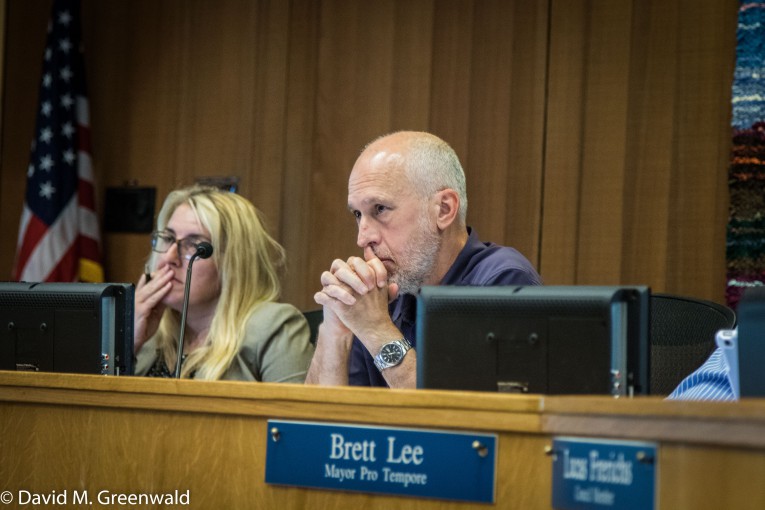
 By Robb Davis
By Robb Davis
Over the past few weeks, via email and at Tuesday’s City Council meeting, I have heard many questions about what will happen in the wake of the Picnic Day incident: what investigations will be undertaken, what process used for sorting out the facts of the event, and what these might portend for changes to Picnic Day, police policy and procedure going forward. Above all, people want to hear what City Council members think and what we are asking for. While I do not speak for other Council members, and while there is still much I do not understand about the event and what will follow, I will endeavor to lay out here, the expectations I have going forward. I have communicated these to staff.
I expect and hope for the following.
- That a full, independent and impartial investigation of the events by an investigator who is beholden to no one, who understands police tactics and procedures, and who can use that knowledge and good investigative technique to critically analyze what happened on that day, will take place.
- That the investigation will yield specific key learning points, specific recommendations for change and correction, and options for further training.
- That Chief Pytel will provide a list of specific and actionable responses to the investigative report (as allowed by law).
- A better understanding of policing policies and practices and, in particular in what circumstances plainclothes officers and unmarked vehicles are and are not appropriate tools to maintain public safety.
- Clarity in what ways the training in de-escalation techniques that all our police officers participate in were used or not used in this event and what that means for future training.
- To engage with UC Davis leadership in a deeper analysis of the challenges of policing on Picnic Day.
- To engage with my colleagues and staff on an analysis of whether our current policies and practices related to dealing with the large Picnic Day crowds continue to serve us or whether we need to take other measures to limit large gatherings that have caused problems even for those hosting parties.
- That Chief Pytel will reactivate the citizens’ group that met for over a year to discuss issues of racial profiling and bias—meetings that led, ultimately, to the development of our “alternative dispute resolution” policy that allows citizens to directly engage police officers who have caused them harm.
- That Chief Pytel will work with the Phoenix Coalition and our talented community facilitators to hold community meetings to allow members of the community to share concerns, ideas and a vision for future policing efforts.
- That the City Council will continue its discussion and make a decision on the next phase of civilian oversite of the police that includes a continuation of a police ombudsman and some form of Council subcommittee with citizen members to hear community concerns about policing and recommend options to improve it.
- That our current, departing, ombudsman will be replaced in a timely way—and whoever is in place will review the report when it is issued.
And
- That, in due course, all those harmed in this event will come together in a carefully planned and facilitated meeting so they can describe the harms they experienced, ask questions of those who harmed them, and seek, together a way forward to make the harms “as right as possible,” so relationships can be restored and justice accomplished.
(As always, I value your thoughts and inputs. Don’t hesitate to contact me at rdavis@cityofdavis.org with your ideas/critiques/suggestions)

I posted prematurely on another article before reading this piece by Mayor Davis. So I would like to single Robb out specifically for my appreciation. This is exactly the calm, thorough, evidence based approach that I would hope the city will follow. So, special thanks to Mayor Davis.
This is a really great list, and I, too, appreciate Mayor Davis taking the time to thoughtfully address this issue. I really like when our elected officials communicate their thoughts to the public and engage discussion.
The only thing that I would add to the list is the hope and expectation that we as a community can discuss issues of race in a similarly calm and thoughtful manner. In police matters, we should be able to ask, “to what extent was race an issue here” without jumping to conclusions and calling for firings and at the same time not flat-out denying that race might have played a role. There needs to be space for examining policies and procedures and identifying how they may be more or less prone to the influence of racial bias. But it’s hard to do that when there is finger-pointing and defensiveness.
It’s hard to do that when there is a lot of anger and frustration. Part of why hiring John McGinness was such a bad move is it colored everything else that has occurred.
Still I think a conflict resolution may help but that would assume we can get the right people to the table.